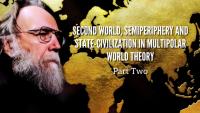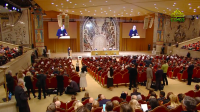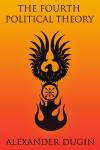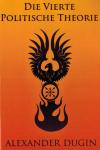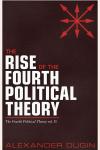Second world, semi-periphery and state civilisation in a multipolar world theory. Part Three
We come to a third concept, crucial for understanding the transition from a unipolar to a multipolar world and the place of the BRICS countries in this process. We are talking about the concept of the civilisation-state. This idea has been formulated by Chinese scholars (in particular by Professor Zhang Weiwei) and most often the concept of the civilisation-state is applied to modern China and then by analogy to Russia, India, etc. In the Russian context, a similar theory was put forward by the Eurasians, who proposed the concept of the Peace-State. Actually, in that trend, Russia was understood as a civilisation, not just one of the countries, hence the main Eurasian concept - Russia-Eurasia.
Second World, Semiperiphery and State-Civilisation in Multipolar World Theory. Part Two
Let us now turn to a different theory: the 'world-system analysis' constructed by Immanuel Wallerstein. Wallerstein, an exponent of the Marxist school of International Relations (especially in its Trotskyist interpretation), on the basis of the doctrine of "the long run" (F. Braudel) and the Latin American theorists of structural economics (R. Prebisch, S. Furtado), developed a model of world zoning according to the level of development of capitalism.
A Brief History of Chaos: from Ancient Greece to Postmodernism. Part 2
It would seem that the SMO is talking about a conflict between two world orders - a unipolar one, represented by the collective West and Ukraine, and a multipolar one, defended by Russia and those who are somehow on its side (primarily China, Iran, North Korea, some Islamic states, partly India, Turkey, but also Latin American countries and Africa). This is indeed the case, but let us look at the problem from a perspective that interests us and find out what role chaos plays.
A brief history of Chaos: from ancient Greece to Postmodern. Part 1
The chaos factor in the Special Military Operation
The most attentive participants in the Ukrainian front note the peculiar nature of this war: the chaos factor has increased enormously. This applies to all sides of the SMO, both to the enemy's actions and strategies and to our command, to the dramatically increased role of technology (drones and aircraft of all kinds) and to the intense online information support, where it is almost impossible to distinguish the fictitious from the real. This is a war of chaos. It is time to revisit this fundamental concept.
DROMOCRACY. SPEED AS POWER
In today's world, speed plays a key role. In everything. In SMO, we have found that even in modern warfare, it is one of the key factors. Much, or almost everything, depends on how quickly one is able to obtain information, communicate it to the commander of a firing unit, make the decision to strike, and promptly change the location of the firing position. Hence the enormous role of UAVs and drones, satellite communications, the time taken to transmit the enemy's coordinates, the mobility of combat units, and the speed at which orders are communicated to the enforcer.
THE NEED FOR A SOVEREIGN LANGUAGE
When we talk about narrative, it is a philosophical category that needs to be known, because the notion of narrative is an element of postmodern philosophy that is based on structural linguistics, on structuralism, on Ferdinand de Saussure, the structural linguist who separated discourse and language. This aspect is very important.
Wang Wen in Dialogue with Dugin: If Russia seeks to solve issues, it should take China as an example to be studied
Wang Wen: First of all, please allow me to pay homage to you on behalf of many Chinese people and express my condolences for the unfortunate passing of your beloved daughter Darya. These past several months, many terrorist attacks have occurred in Russia. How do you see Russia's domestic development under conflict today?
Alexander Dugin's speech at the XXIV World Russian People's Council
The XXIV World Russian People's Council on the theme "Orthodoxy and peace in the 21st century” was opened with speeches by people of great significance to Russia: spiritual leaders, politicians, philosophers, and statesmen. All of them noted the importance of creating a state ideology for the preservation of Russian statehood.
His Holiness Patriarch Kirill of Moscow and All Russia noted the dangers of globalism, which "organizes integration and unification processes through weakening and breaking the deep spiritual ties between people, and between God and man."
Memento Mori, In Memoriam – Daria Platonova Dugina
There are decades when nothing happens, there are days when centuries unravel and explode, and there are singular moments in which eternity irrupts like lightning, torching timeframes and perceptions of temporality in an incalculable, ecstatic instant, only to spiral back into the dark and leave behind an even thicker, heavier, mysteriously endured duration of the here and now….
THE TIME FOR HALF-MEASURES IS OVER
We have been fighting desperately for eight months now, spilling rivers of blood, losing many lives, including innocent ones, breaking all ties and agreements, taking risks, advancing, retreating, striking, taking blows, and already terrorist attacks on Russian territory have become the norm, and each new attack is getting nastier and harsher, and everyone has the strange feeling that we are waiting for something... A kind of red line... Everything that could be crossed has been crossed. In the current situation it is neither possible to surrender nor to negotiate.
The Third Period of Russia’s Modern History: War
What is happening now in Ukraine is war. There is no more Special Military Operation (SMO)—what we have is called “war.: Not a war between Russia and Ukraine, but a war of the collective West against Russia. When U.S. trackers direct missiles at Russian territory, it can only be called “war.” And it doesn’t matter whose arms they are fighting with. When they aim HIMERS at the Zaporozhye nuclear power plant it can be interpreted as an attempt to deliver a nuclear strike on Russia. If the US, NATO and the collective West had not sided with the terrorist regime in Kiev, all the goals of the SMO would have been successfully accomplished long ago. But the real war began. The West has crossed all red lines. This is irreversible.
DARIA DUGINA: JOAN OF ARC FOR THE MULTIPOLAR WORLD
The death of Daria Dugina, which took place on the night of August the 21st of the present year, was an event which shook the entire illiberal political and intellectual world, it was an atrocious and cruel act, which took away the life of a young woman of 29 years old, who had a brilliant future as a political scientist and journalist.
“Import Substitution,” and What Comes After
The authorities and society, apart from the war, of course, are now most concerned about how to adapt to the new conditions. The novelty of these conditions is that we have been excluded from the West, and we have excluded the West from ourselves. Not that this is something completely new and unprecedented—in our history, we have very often found ourselves in exactly this kind of relationship with the West. And it’s no big deal. And this time nothing terrible will happen. But still, our lives will change significantly.
ANTIKEIMENOS [5]
Structural analysis of the eschatological scenario, the "antichrist calendar", the morphology of the end of the world
In developed theologies - and especially in the context of monotheism - the final battle and the timing of the arrival of the 'Antichrist' take on a special significance, distinct from the general context of time. In a sense, the words of the Russian Old Believer "We have all our faith in the Antichrist" apply to all monotheistic traditions, where the drama of confrontation with the enemy, with the spirit of evil overthrown, is a central issue. The very theme of the 'end times' is highlighted in a separate direction: eschatology, the doctrine of the end.
IMPORT SUBSTITUTION AND ITS CONSEQUENCES
Currently, the authorities and society, beyond the war, are mainly concerned with how to adapt to the new conditions. What is new about these conditions is that we have been excluded from the West and have excluded the West from ourselves. Not that this is something completely new and unprecedented: in our history, we have very often found ourselves in this kind of relationship with the West. It is no big deal, and nothing terrible will happen this time. However, our lives will change significantly.
Integral sovereignty
The country [Ed. note: Russia] is in a very peculiar state today. It is like being poised between a past that has already ended and a future that has not yet begun, or rather has begun but has not yet been realised or accepted. These are fundamental questions: Russia's attitude to global processes and, above all, to the collective West.
ANTIKEIMENOS [2]
The Ontology of the Denoted in Traditionalism
What is the semiotic structure of Traditionalism, i.e. of Tradition - or, if you like, of the 'primordial tradition'? This structure represents, with respect to specific traditions, a kind of meta-language that generalises the paradigmatic properties of specific traditions as specific languages. That is, we are dealing with a generalising set of signs, which we can try to ascribe to the field of the signifier.
THE UNITED STATES COURT AGAINST THE IDEOLOGY OF PROGRESS
The fact is that the only branch of the US government that has not yet discredited itself was until recently the courts. Their authority was unquestionable for all political forces. It is believed that corruption and ideological lobbying in the judiciary failed to take complete control. And now the judges appointed under Trump have made their move. All this requires very serious reflection.
ANTIKEIMENOS [1]
Traditionalism and Semiotics
The purpose of this article is to examine the figure of "the Antichrist" and the semantic field of "the end of times" without reference to any one particular religious tradition.
But the figure of the "Antichrist" (Ο Αντίχριστος) has such a tie - to Christianity. Consequently, we can say that we are considering not only and not so much directly the Christian figure of the Antichrist, but also his analogues. This leads us to the theme of traditionalism.
The Eurasian Turn of Russia
Russia is very big, a huge continental ship. It is difficult to move it quickly onto a different course because of its bulk, but continuing inertia towards the abyss is also not an option. There is therefore a very complicated problem of the timing of Eurasian reforms (and there is no other in our situation).
Until 1991, the Soviet Union followed a single path, it was going in an unknown direction.
At that point a dilemma presented itself: change course
The Eurasian turn of Russia
Russia is very big, a huge continental ship. It is difficult to move it quickly onto a different course because of its bulk, but continuing inertia towards the abyss is also not an option. There is therefore a very complicated problem of the timing of Eurasian reforms (and there is no other in our situation).
THE REJECTION OF THE BOLOGNA PROCESS AND THE IDEOLOGICAL CONVULSIONS OF THE ÉLITE
Let us talk about the rejection of the Bologna Process [Editor's note: This is the reform process of the higher education system at international level, which began in 1999 at the University of Bologna, from which it takes its name. This agreement has enabled an almost unified system of recognition and equivalence of academic qualifications. Many European States adhere to the Process, but for the last three years there has been a gradual abandonment of the convention]. The focal point is a question of principle. The introduction of the Bologna System was part of an overall project: the full integration of Russia into the global world, which means adopting all the norms and rules of the West. This was not just about education, but has been the main strategy of the Russian government since 1991. The adaptation of all standards of living - education, economy, culture, science, politics, technology, fashion, art, education, sports, media - to the norms of the modern West was the main goal of all reforms. This applied to everything and was the main goal of the authorities under both Yeltsin and Putin. The implementation of the Bologna system is an infinitesimal element of this overall strategy.
Russian code
By engaging in direct confrontation with the West during the SMO, even though the West itself participates through its Ukrainian proxy structure, which cannot be called a 'country', Russia is forced to defend its sovereignty on all levels. In terms of military, economic and formal policy, this is quite obvious, but the West is much more than a political-military-economic structure: it is a civilization with a fundamental program code. Everything else is derived from this code: weapons, economy, politics, culture, education, science, media, etc. Russia is now forced to confront the whole spectrum and, in general, the Western code itself.
Russian Code
By engaging in direct confrontation with the West during the SMO, even though the West itself participates through its Ukrainian proxy structure, which cannot be called a 'country', Russia is forced to defend its sovereignty on all levels. In terms of military, economic and formal policy, this is quite obvious, but the West is much more than a political-military-economic structure: it is a civilization with a fundamental program code. Everything else is derived from this code: weapons, economy, politics, culture, education, science, media, etc. Russia is now forced to confront the whole spectrum and, in general, the Western code itself.
The rejection of the Bologna Process and the ideological convulsions of the élite
Let us talk about the rejection of the Bologna Process [Editor's note: This is the reform process of the higher education system at international level, which began in 1999 at the University of Bologna, from which it takes its name. This agreement has enabled an almost unified system of recognition and equivalence of academic qualifications. Many European States adhere to the Process, but for the last three years there has been a gradual abandonment of the convention]. The focal point is a question of principle. The introduction of the Bologna System was part of an overall project: the full integration of Russia into the global world, which means adopting all the norms and rules of the West. This was not just about education, but has been the main strategy of the Russian government since 1991. The adaptation of all standards of living - education, economy, culture, science, politics, technology, fashion, art, education, sports, media - to the norms of the modern West was the main goal of all reforms. This applied to everything and was the main goal of the authorities under both Yeltsin and Putin. The implementation of the Bologna system is an infinitesimal element of this overall strategy.
The Polish Question. Partition of Ukraine?
Some background on Poland: the plan to hand over western Ukraine to Poland already existed before the start of the SMO, when the West was only considering the likelihood of such a conflict. NATO believed that Russia would destroy the command centre in Kiev at the beginning of the operation and that this would be a wake-up call for Poland; the relocation of the embassies from Kiev to Lviv was also linked to this.
Darya Platonova: The War in Ukraine a Clash of Globalist and Eurasian Civilizations
The conflict in Ukraine is still not over. In the West we are bombarded with information in favour of Ukraine and the Ukrainians. We forget that the Russians also have their own point of view. That is why we interviewed Darya Dugin, daughter of Aleksandr Dugin, about the situation. A fascinating interview.
The winning philosophy
Meaningful internal reforms must logically begin in Russia. This is required by the SMO, which, in the extreme, has aggravated the contradictions with the West - with the entire modern Western civilisation. Today anyone can see that it’s no longer safe to simply use the norms, methods, concepts, products of this civilisation. The West spreads its ideology along with its technologies, permeating all spheres of life. If we recognise ourselves as part of Western civilisation, we should voluntarily accept this total colonisation and even enjoy it (as in the 1990s), but in the case of the current confrontation - which is fatal! - this attitude is unacceptable. Many westerners and liberals became fully aware of this and left Russia at the very moment when the break with western civilisation had become irreversible; the situation became irreversible on 24 February 2022, and even two days earlier - at the time of the recognition of the independence of the DPR and LPR - on 22 February 2022.
Alexandr Dugin and John David Ebert in Conversation
Alexandr Dugin and I discuss Russian identity, Ukraine, Heidegger, Spengler, Plato, Aristotle and Slavoj Zizek, as well as popular culture
Empire and praxis
What are the decisive factors for the restoration of a true empire in Russia? This question was posed seriously by Father Vladimir Tsvetkov, prior of the Sofronie Hermitage near Arzamas, in a very profound formulation: what should we pray for? In fact, the same question was asked of Konstantin Malofeev at the presentation of his book Empire: Where is the Empire today?
'We need a winning country': Russia is going to radical changes
The elites have their backs to the wall: the special operation requires patriotic reforms now, immediately, but whether they will be implemented 'from above' or become a necessity due to the imminent collapse of the old system, it is impossible to say. After all, the 'wild 1990s' have not yet disappeared completely.
'We need a winning country': Russia is going to radical changes
The elites have their backs to the wall: the special operation requires patriotic reforms now, immediately, but whether they will be implemented 'from above' or become a necessity due to the imminent collapse of the old system, it is impossible to say. After all, the 'wild 1990s' have not yet disappeared completely.
Three months of SMO: Russia has done well, but…
Almost three months have passed since the start of the SMO (Special Military Operation) in Ukraine. Some conclusions can be drawn. I will not consider the military aspect of the operation, which requires the opinion of experts in military strategy, and one cannot talk about everything while the battle is going on. I would like to assess other circumstances that are purely political:
The antichrist's last trick
Let's put all the elements together. We have a frightening picture (for the Russians). Forces, groups, worldviews and governmental entities, which collectively call themselves "the West" and which since their victory in the Cold War have been the sole rulers of the world, behind a façade of "liberalism" profess a thin eschatological theological doctrine, in which the events of secular history, technological progress, international relations, social processes, etc. are interpreted from an apocalyptic perspective.



